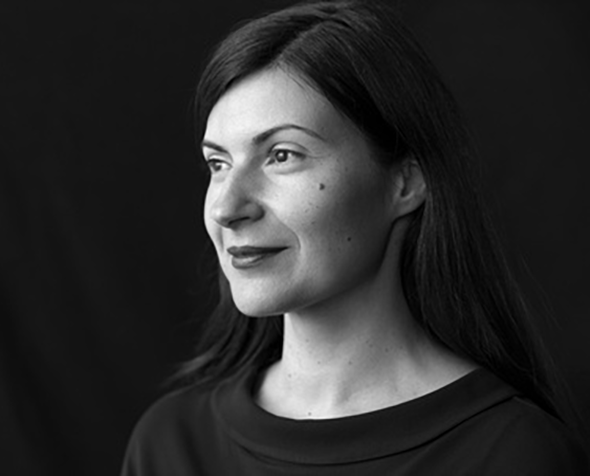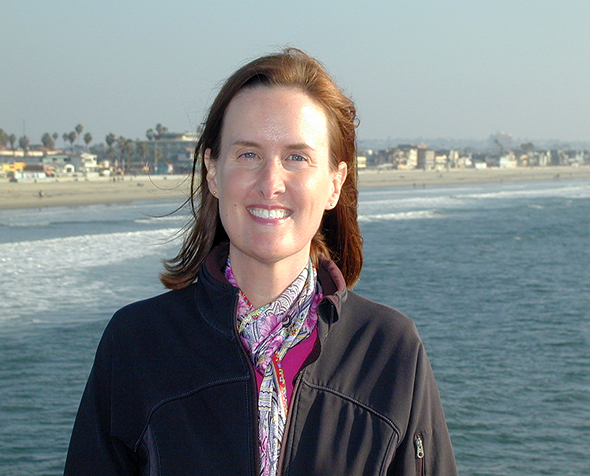New Editors Initiate Innovative Changes at Denver Quarterly
With a 53-year history publishing innovative work in poetry, fiction and nonfiction, Denver Quarterly isn’t showing any signs of slowing down.

John Ashbery, César Vallejo, Joan Didion, Robert Penn Warren — these are just a few of the writers published in DU’s Denver Quarterly, the oldest, continuously publishing literary arts journal west of the Mississippi. With a 53-year history publishing innovative work in poetry, fiction and nonfiction, Denver Quarterly isn’t showing any signs of slowing down.
Under the new editorship of W. Scott Howard, professor in the Department of English and Literary Arts, the journal has big plans to expand publication in print and online, revitalize their on-campus presence and deepen relationships with Denver’s larger literary community.
“Our editorial cohort is becoming more robust, more diverse; there’s more energy, and also more coordination and collaboration,” says Howard, who assumed editorship in July.
Founded in 1966 by author, editor and DU professor John Williams, the journal is led by DU students under the guidance and mentorship of faculty. Poet Bin Ramke and novelist Laird Hunt served as the journal’s previous editors, guiding the publication for the past 25 years.
Howard views his role as one of “energizing” the team, which has expanded to include undergraduate interns alongside editorial assistants and assistant editors drawn from the department’s MA and PhD students. The role of associate editor is awarded each year to one PhD candidate through the Denver Quarterly Editorial Fellowship. Vincent James, a prose writer and creative writing doctoral student, is this year’s recipient.
“One thing I have been deeply impressed with,” says James, “is the journal’s inclusion of first-time writers alongside legendary figures. This signals to me that a journal with such a storied reputation is accessible to those who are just starting out. I am paying keen attention to this dynamic during my tenure.”
James, working collaboratively with Howard and the rest of the editorial team, is building on the long-standing reputation of the journal while continuing to innovate. Capitalizing on the journal’s in-the-works website, he plans to incorporate sound, visual work and performance texts into upcoming issues.
“Doing so will permit the journal to stay on the vanguard of creative and critical work, while also expanding beyond our legacy categories,” he explains. “I hope to read treatments of choreographed dance, flash mobs or other strange ventures in the coming months.”
But including new genres and modalities doesn’t mean forgetting the past. The journal’s aesthetic has always been a blending of the cutting-edge with more classic works. Howard — who began reading Denver Quarterly decades ago in 1990 as Powell Books’ small press and journals manager — says the journal’s aesthetic exists “in the midst of tradition and against tradition.”
“The work we’re doing now has been part of the spirit of the journal from the beginning: innovative work that is also shaped by tradition, where ‘tradition’ is understood as a fluid and dynamic living fabric, not a set pattern. Tradition that’s alive.”
The editorial team has recently converted the journal’s former office into the Denver Quarterly Lounge, a communal space in Sturm Hall for readers and writers, students and colleagues, as well as a physical site representing publications from the journal’s half-century of history. These archives are also being stored in the DU Special Collections, where 38 boxes worth of Denver Quarterly materials are being catalogued in a collaboration between the library’s archivists and the journal’s staff. Howard hopes to be able to offer a research grant to students to support and further this work.>
While Denver Quarterly has long been part of the University and Denver communities, its collaborations haven’t always been celebrated. Howard, James and the rest of the team are working to change this.
“These relationships exist but are hidden because so much of the journal’s engagement hasn’t been visible. I want to bring the journal out,” says Howard.
Initiatives include working with The School of Art and Art History’s studio art students on covers, internal art and artist statements; drawing from the Theatre Department to include an advanced undergraduate reader for playwrighting; and partnering with Special Collections, DU’s Publishing Institute and local letterpress book artists to illuminate the journal’s abiding care with and concern for small press publishing.
Externally, the journal is boosting their web presence as part of public engagement, while also making it more accessible through social media. The team plans to host a reading with each quarterly publication, including off-campus readings that connect the University with local bookstores.
Long-standing collaborations with local supporters like Beacon Printing will also be emphasized in upcoming issues. Beacon, a local, American Indian owned enterprise, is dedicated to green printing and uses all plant-based inks. Highlighting partnerships like this one is part of the journal’s plan going forward.
Internally, the staff is also working to bring in a greater diversity of readers to better represent the existing diversity of the department’s and the University’s students. For editors, working on the journal is a professional development opportunity that offers real-world insight into literary publishing in an environment driven by collaboration and mentorship.
“The journal is given life by our community and every day it is invigorating to benefit from the collective intelligence of our staff,” says James.
Denver Quarterly will be hosting a reading on October 14, 2019 at the Vicki Myhren Gallery to introduce their newest issues, 53.3 and 53.4, which came out this quarter. Copies will be available for cash purchase at a discounted rate at the reading.
Keep up to date with the journal on their website, at their Facebook page @denverquarterlyjournal and on Twitter and Instagram @denverquarterly.
Pictured above from left to right: Alicia Wright (poetry editor), Vincent James (associate editor), W. Scott Howard (editor) and Kelly Krumrie (prose editor).






